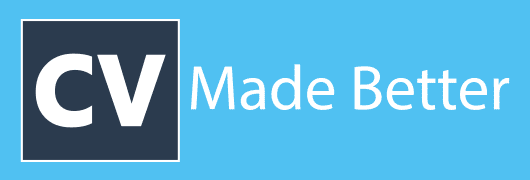The Most Essential Job Interview Tips – Your Guide to Success in 2021

The final stage in getting a job is the interview. These come in many forms, Face to Face, Via phone or even Video Conference. The interview is what people often dread the most, and it is completely natural to be a little nervous. Listed below are some useful interview tips, which we hope takes the pain out of this process and helps to secure that job you desire.
Get tips on how to answer common interview questions and learn more about our CV writing services.
Do your Research
An interview is not the time for research. In the age of the Internet, it is pretty straightforward to find out about a company’s products, services, structure and other key information.
In preparation for your interview, it is best to take at least fifteen minutes looking at the company’s website. For a greater edge, try Google searching to find the latest news articles concerning the company.
When the question, “What do you know about us?” comes up, you can show you have taken the time to research and demonstrate your knowledge about who the company are and what they do.
Rehearse your Answers
As previously stated, interview preparation is vital. If you get interview nerves, then try practising the process with a friend.
Conduct an interview rehearsal with a list of mock interview questions and record the process.
Should you have to complete a presentation or demonstration as part of the interview, include that as well. Start by introducing yourself and go all through the interview process right up to saying good-bye. Once completed, review the recording and write out and practise any answers you had difficulty with. Keep doing this until you are feeling happier and more confident in your delivery.
Ask Questions during the interview
Using your research of the company and a copy of the job advert / specification, aim to develop a set of ten relevant questions to ask at the interview. It is not necessary to ask all these questions. Still, they are perfect for the conclusion of the interview should points you wanted clarifying not being covered.
The types of questions you should ask could be around the company culture, the size of the team you will be working in or specifics about the role itself. The interviewer always notes asking intelligent questions favourably, as it shows interest and enthusiasm for the position.
Mind your Body Language
Body language is an area that many interviewers will take seriously.
For example, your CV / Resume may say you are ‘a confident person’, but your body language can give a completely different impression.
Body language is an area that has been analysed for many years by professionals and interviewers alike. It is incredible what you can learn from someone just by noting their mannerisms.
Make an Interview Preparation Sheet
A great way of getting around interview nerves is compiling a preparation sheet to take into the interview with you.
We would suggest using an A4 notebook and pencil. Write out some key facts about the company, points you want to get across and questions to ask. This must be written lightly in pencil and not pen, as then from across the desk, the interviewer will be unable to see your notes.
On the opposite page, you can make your pen your own thoughts about the interview and refer to them later. This gives the impression of ultimate professionalism and gives you the advantage of being able to refer to a point you may have otherwise forgotten to ask or say.
When Answering Questions…
Try and keep your answers as concise (but not yes and no answers) as possible.
If you are asked a specific question that requires you to provide an example of how you have dealt with a situation, then give an example that makes your achievement stand out.
For example: if you have won the employee of the year award then give a little background into how you achieved it.
Inevitably there will be times when you run out of steam, and these moments can be quite frustrating. In this case, just sit back, relax and take a few seconds to compose yourself before you deliver your answer to the question. Some people believe that talking is more important than listening, but they are wrong. Avoid the temptation to interrupt the interviewer and allow them to finish their question before attempting to answer it.
Dress to impress
First impressions count, and it is always a good idea to “Dress Above the Rest” at an interview. Remember you are out to make a good impression. Therefore, if the company’s dress code is casual, then you need to be dressed casually but a little smarter.
For example; if the other employees wear trousers and open-neck shirts then it would be a good idea for you to wear trousers, a tie and a smart jacket. If the dress code is a suit and tie, then you need to wear your best suit and tie.
In addition, only wear minimal jewellery, remove facial piercings and make sure your shoes are polished. Regarding hygiene; hair must be well-groomed, wear deodorant and keep scents low-key.
Don’t ask about money
This is a sensitive subject as (let’s be honest) the main reason most people go to work is to get paid but the last impression you want to give is your in for the money.
The interviewer should bring up the subject of salary.
This will generally be towards the end of the interview and in two-stage interviews may not come up until the second meeting. The aim of the interview is to try and present yourself in the best possible way. Should the company want to hire you, the subject of money will present itself in due course.
Don’t Be Late
There really is no excuse for arriving late to an interview. Not only does it leave a bad impression, but it could also annoy the person who is interviewing you.
The day before your interview make sure you have looked up the address on a map and if possible, do a test run, so you know exactly where you are going.
On the day itself leave plenty of time and if an unforeseen delay does occur, ensure you have a contact number for the interviewer. If you do think you are going to late make the call ASAP to apologise and see if you can delay or reschedule the interview.
Know your CV / Resume
Before conducting a job interview, an interviewer will have usually read your CV / Resume and have prepared their questions around the information it contains. With this in mind, you must know what is on your CV / Resume and if possible, always take a copy to the interview.
The worst-case scenario is the interviewer asking about a particular aspect of your job history only for you to be unable to answer the question. From this, they could deduce you have either embellished the CV or have a poor memory. Either way, this is not the right impression you should wish to convey.
Quick Interview Tips: Do’s and Dont’s
Here are some simple rules you should follow during a job interview.
Do
- Smile as frequently as possible (especially when you respond to a question) but don’t overdo it
- Keep your hands in your lap and try not to gesture wildly
- Keep eye contact at all times. If there is more than one interviewer look at each person, not only the one asking questions.
- Be articulate and listen carefully to each question before giving your answer
- Think positively don’t come across a complainer
- Keep calm and don’t panic
DONT
- Cross Your Arms: Makes you look defensive.
- Sit on the edge of your seat.
- Play with your jewellery or hair, or overly touch your face.
- Rock on the seat.
Interrupt when being asked a question
We have reviewed, written and analysed thousands of CVs, Resumes and LinkedIn profiles for individuals at all levels. So when it comes to interview advice, you can trust us. How do you prepare for your job interviews?
If you need help regarding a new position, don’t hesitate to reach out to us. Take a look at our services below.


